

Paul Régimbeau was the French musician behind the dark, sensual electronic music released under the German-sounding pseudonym Mondkopf. In March, he collaborated with the Lyon-based graphic arts agency Trafik to create a spectacular installation to accompany him on stage. More and more electronic musicians, sensitive to the fact that their stage presence and the visual aspect of their performances were underwhelming, had started to use the digital arts, especially after Daft Punk’s impressive pyramid installation. Mondkopf’s live performance, Éclipse, garnered special attention on March 5, 2011 during the inauguration of Gaîté Lyrique, a new Parisian concert venue dedicated to digital technology in all its forms.
French musician SebastiAn was equal parts a hip-hop and electro fan. He traveled with Daft Punk, providing the DJ sets that opened their Alive 2007 tour, and had been picked up by the Ed Banger label in 2005. SebastiAn was also supported by Quentin Dupieux (Mr Oizo), who offered him a role in his movie Steak. In June, he came out with his first album, Total, which was carried by the electro-soul hit “Embody.” His live performances, which featured a set designed to look like a political meeting parody, were less well received. SebastiAn also composed the original soundtrack for Notre jour viendra. Its director, Romain Gavras, had created many of the music videos from the French Touch 2.0 movement, including those of Justice.
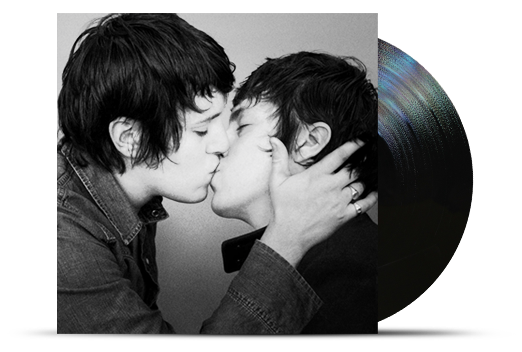
Rock musicians Guillaume Brière and Benjamin Lebeau changed the name of their group from The Film to The Shoes when they switched to a much more electronic sound. Their first album, Crack My Bones, featured pop melodies and was well received at its release in 2011. After multiple concerts, the group released a second album in 2015.
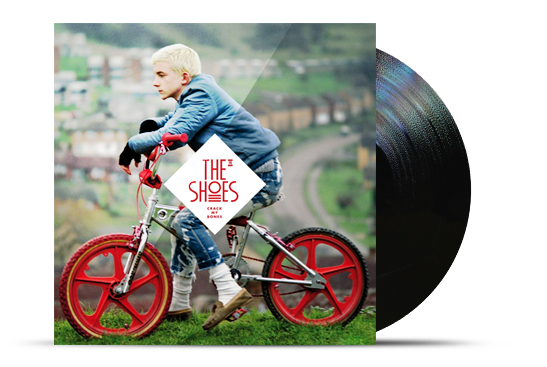
Produced and hosted by Didier Varrod since 2003, the radio program Électron Libre ensured the French electronic scene remained in the spotlight on France Inter and the public broadcasting service. Laurent Garnier, Daft Punk, Vitalic, Birdy Nam Nam, and Pedro Winter were just a few of the countless French artists who visited its studio. Électron libre remained open to other styles. In fact, electronic artists enjoyed coming on air to talk about other musical genres, including Chanson Française; Justice, Para One, and Joakim spoke with Didier Varrod about their fondness for the style. The show also fostered many unusual pairings, including Christophe and Agoria, Chloé and Alain Chamfort, and the hardcore DJ Manu le Malin and the singer Olivia Ruiz.
After many memorable special programs, such as during the ten-year anniversary of the F Communications record label, Électron Libre, which broadcast from midnight to 1 a.m. on Sunday nights, signed off for the last time in June 2011. The final show featured a live performance at Point Éphémère in Paris with a DJ set by Arnaud Rebotini along with the DJ Jérôme Pacman, a pioneer of the French house music scene, as well as several of the show’s regular journalists such as Odile de Plas, Pascal Bertin, and Alexis Bernier. The program’s official producer, Antoine Dabrowski, later became the director of the web radio station launched by the magazine Tsugi. Its slogan, “We’re still saying good evening, but it’s already time to say good morning,” which was repeated at the start of every show, became such a classic line that Didier Varrod, who worked as the music director at France Inter until 2016, continues to hear it to this day.
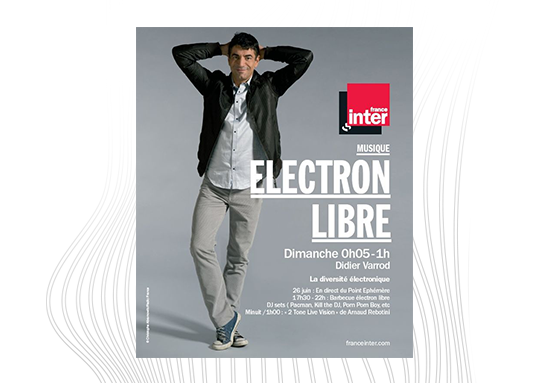
Philippe Zdar, who had already made a name for himself as a member of two of the most important duos in French Touch, Motorbass and Cassius, added another feather to his cap by becoming one of the most requested producers in the 2010s. After adding the final touches to his sumptuous Motorbass Studio in Paris’s ninth district, he enjoyed considerable success with his production of Wolfgang Amadeus Phoenix, the 2009 album from French rock group Phoenix. On the heels of this achievement, Philippe Zdar worked on multiple prestigious albums, including records by the Beastie Boys, Cat Power, The Rapture, and the French duo Housse de Racket. It was another example of the power of the French touch.
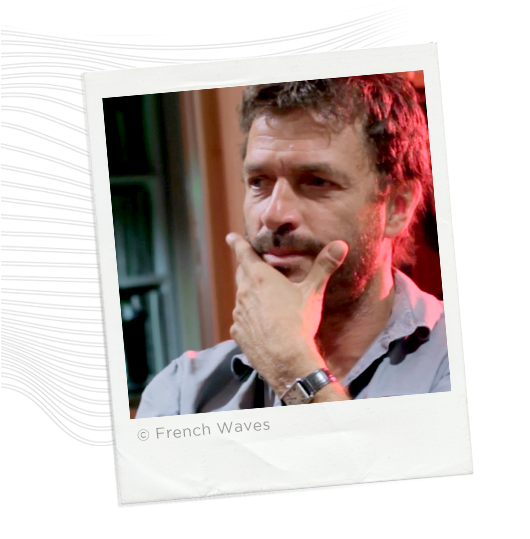
One of the most unusual and likeable figures in the French electronic scene passed away tragically on September 13 at the age of thirty-four. Tunisian-born Mehdi Favéris-Essadi, also known as DJ Mehdi, was a notable player in of the French rap scene in the 1990s before he developed a passion for electro in the 2000s and started collaborating with the label Ed Banger, among others. DJ Mehdi forged a link between two major music styles that did not often interact even though they shared the same roots, i.e. early electro from the 1980s when Afrika Bambaataa drew inspiration from Kraftwerk.
DJ Mehdi started composing for the group Ideal J, which was started by the rapper Kery James, in 1992. He then became a member of the collective Mafia K’1 Fry, but it was ultimately with 113 that he was the most successful. In 2000, the album Les Princes de la Ville was given two Victoires de la Musique awards. DJ Mehdi was collaborating with the entire rap scene at the time, from MC Solaar to Booba, but his music had started to change as evidenced by his album (The Story Of) Espion in 2002. A close friend of Pedro Winter, he signed with the label in 2006 to release his third album, Lucky Boy. He also mixed with Justice, Cassius, and Pedro Winter as part of the DJ collective Club 75 and founded the duo Carte Blanche with the English DJ Riton. Carte Blanche’s music was strongly influenced by the Chicago pioneers of house music. DJ Mehdi’s death was due to a twenty-foot fall after the Plexiglas flooring covering a light shaft in his apartment broke, cutting short a promising career that would have likely made him a major player in the French scene.
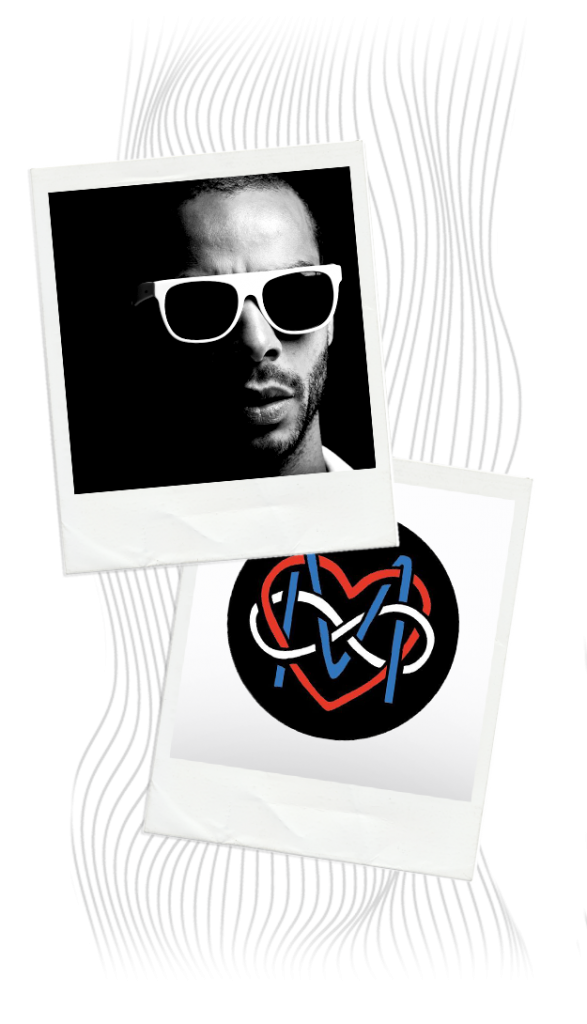
Sponsored by a part of the Batofar venue team in Paris and stakeholders from the local scene, another floating concert venue opened in France, this time in Bordeaux. While it was open to all styles of music, I.Boat mostly featured electronic. It played an important role for the orphaned scene from another key club, 4 Sans, which closed at the start of 2011. The line-up of artists invited to perform during the three-day opening event that started on September 29 included Baxter Dury, Mondkopf, Team Ghost, and Jackson.

To celebrate its four-year anniversary, the magazine Tsugi brought together the last remaining independent French electronic labels for a family photo. Versatile, presided over by its kingpin, DJ Gilbert, was the only survivor from the wave of record companies created during the French Touch movement. Between the music industry crisis and the changing consumption habits of music listeners, labels were facing an increasingly uncertain future. That’s why the magazine decided to shine the spotlight on these incredibly important players. Around sixty small record companies, such as Zone, Ed Banger, I’m a Cliché, Tigersushi, Sound Pellegrino, InFiné, and Pan European, were included in the photo, which was taken at Gaîté Lyrique.
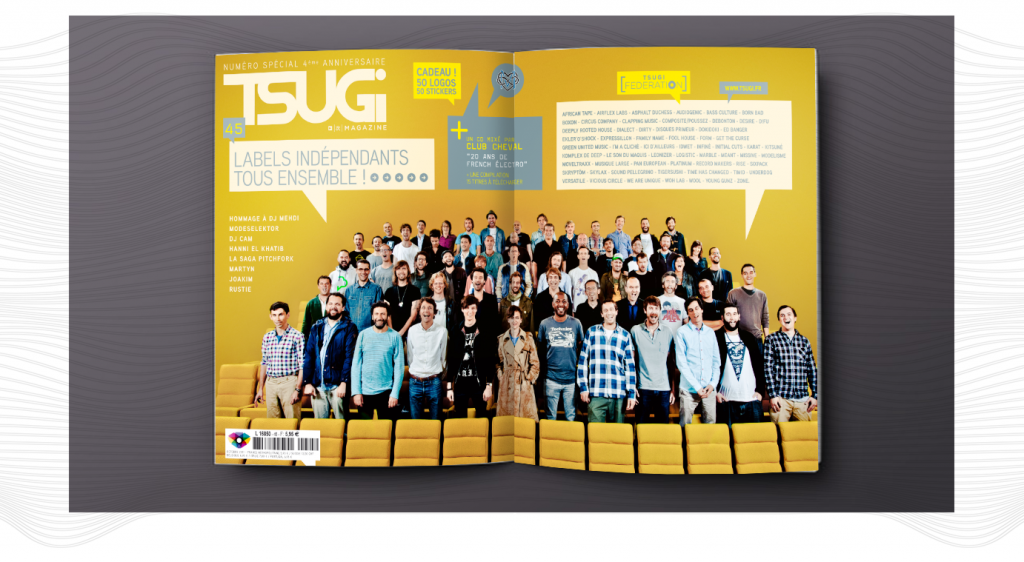
Justice’s second album was eagerly anticipated following the success of Cross. Audio Video Disco came out in October. While fans of frenetic Turbine-style music were disappointed, the press’s main takeaway was the original mix of progressive rock and disco influences that permeated the album. While listeners were less enthusiastic about Audio Video Disco than Justice’s first album, it was nevertheless a huge success on stage during the artist’s spectacular tour that followed the record’s release.